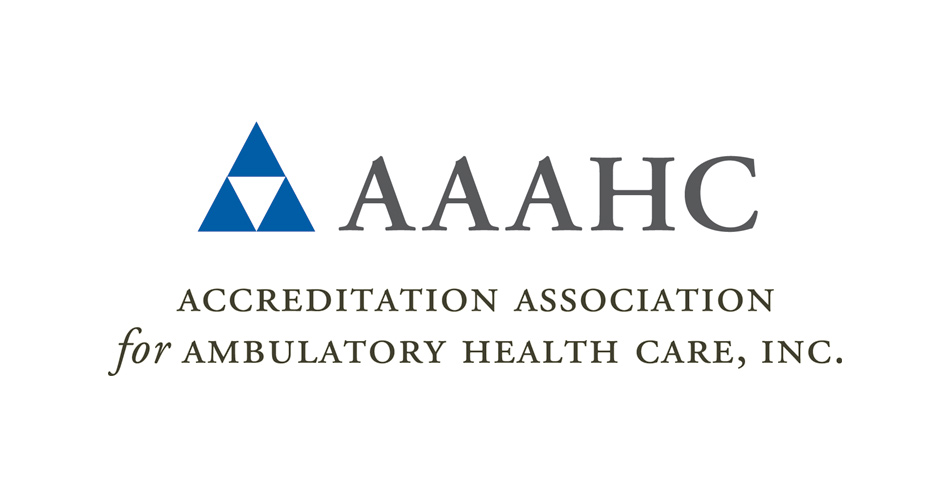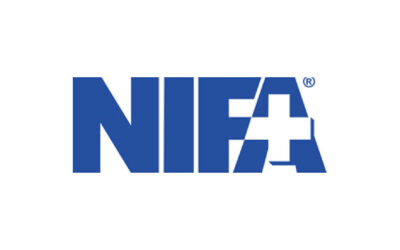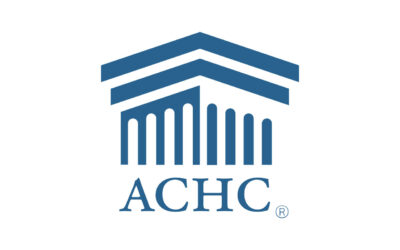AAAHC President and CEO John Burke plans to step down in 2015, ending his stewardship of a premier health care accreditation association after a tenure of 18 successful years.
“I’ve always enjoyed the challenge of growing, or even building a new organization,” Burke said. “When I joined AAAHC in 1997, we had a staff of eight and 500 accredited organizations. We had a relatively small budget and meager resources, except for the volunteers who made up the organization.”
Now, with a current staff of 66 and more than 6,000 accredited organizations, Burke feels that this is an appropriate time to hand over the reins to someone else with equally robust ambitions. It might also be an appropriate time to review the career of a man whose background straddles academia, communications and business.
First, a few details on John Burke the man.
 Burke was born in Huntington, West Virginia, where, after high school he first entertained thoughts of entering the priesthood. He completed his first year of college at St. Fidelis College and Seminary, taught by a contemplative order of friars, followers of St. Francis of Assisi and devoted to simplicity and hard work. From there, Burke entered the University of Kentucky where he joined the U.S. Air Force ROTC program and sported a white helmet as a member of the cadet police corps. At UK, he played on the varsity tennis team and continued (from high school days) as a collegiate fencer, winning national medals in foil and saber. Moving to Marshall University to complete his Baccalaureate degree, Burke worked as a news writer and editor at WSAZ-TV, sparking his interest in communications. He also worked for his first real mentor, Congressman Ken Hechler, a ranking Democrat who was formerly on the faculties of Marshall and Columbia universities. Incidentally, Congressman Heckler had previously written speeches for President Harry Truman and interviewed many of the defendants prior to the Nuremburg trials following World War II, including Hermann Göring. At Marshall, Burke did a lot of acting in University Theater while working toward his degree and before being offered an assistantship at Ohio University in Athens to work on a master’s degree. At Ohio University, Burke decided to work beyond an MA degree to receive a master’s of fine arts, then considered a terminal degree in some circles.
Burke was born in Huntington, West Virginia, where, after high school he first entertained thoughts of entering the priesthood. He completed his first year of college at St. Fidelis College and Seminary, taught by a contemplative order of friars, followers of St. Francis of Assisi and devoted to simplicity and hard work. From there, Burke entered the University of Kentucky where he joined the U.S. Air Force ROTC program and sported a white helmet as a member of the cadet police corps. At UK, he played on the varsity tennis team and continued (from high school days) as a collegiate fencer, winning national medals in foil and saber. Moving to Marshall University to complete his Baccalaureate degree, Burke worked as a news writer and editor at WSAZ-TV, sparking his interest in communications. He also worked for his first real mentor, Congressman Ken Hechler, a ranking Democrat who was formerly on the faculties of Marshall and Columbia universities. Incidentally, Congressman Heckler had previously written speeches for President Harry Truman and interviewed many of the defendants prior to the Nuremburg trials following World War II, including Hermann Göring. At Marshall, Burke did a lot of acting in University Theater while working toward his degree and before being offered an assistantship at Ohio University in Athens to work on a master’s degree. At Ohio University, Burke decided to work beyond an MA degree to receive a master’s of fine arts, then considered a terminal degree in some circles.
After completing his MFA and teaching three years at Kent State University, Burke moved to the Ohio State University in Columbus, Ohio, to study under a professor he considers his second mentor, Dr. Walter Emery, a noted authority on broadcasting regulations. While studying there for his Ph.D., Burke became assistant to the director at the Ohio State University Telecommunications Center (WOSU-TV). There he worked for a third mentor, Richard B. Hull, who had established the first non-commercial, educational broadcasting station at WOI in Ames, Iowa. After completing his doctorate and publishing his dissertation on the history of public broadcasting, Burke was appointed as a new department head in the School of Allied Medical Professions at Ohio State (later renamed the School of Health and Rehabilitation Sciences). Here, he spearheaded the development of a new academic program in medical communications and did pioneering work in telemedicine, experimenting with a microwave system rather than the then experimental, but unreliable, laser communications system.
After sixteen years at Ohio State (where he first earned his tenure and associate professorship, and where he became editor of the Journal of Allied Health, specializing in health care research and development for an audience of universities and health care organizations), Burke followed a colleague to the University of Illinois at Chicago .
At UIC, Burke held six concurrent titles: Professor and Associate Dean for Academic Affairs; Chairman of the Department of Associated Medical Sciences; Professor of Biocommunication Arts; Professor in the Center for Educational Development; Professor of Communications; and remained editor of the Journal of Allied Health. To say that Burke was busy at UIC would be an understatement – he served on 28 different committees and the University Senate – during which period he traveled as part of a World Health Organization delegation to Africa (Congo and Kenya) to explore local issues in medical education.
Finally, making an unusual transition to the for-profit world of industry in 1987, Burke joined the Pharmaceutical Division of Abbott Laboratories in North Chicago, Illinois, as Manager, Biomedical Communications. Tasked with building a worldwide medical education program for Abbott, Burke finally moved on from his tenured academic career.
During his time at Abbott, Burke built new programs in medical education and established a new program in scientific relations. But after 10 interesting and challenging years (which entitled him to retire with full benefits), Burke was recruited to join a small, nonprofit association with what he saw as enormous potential: the Accreditation Association for Ambulatory Health Care, (AAAHC).
Geoffrey Charlton-Perrin is Director of Marketing and Communications for AAAHC, the nation’s leader in ambulatory healthcare accreditation. Previously, he was Director of Marketing for the Chicago Convention and Tourism Bureau and, before that, President of a major Chicago advertising agency. Charlton-Perrin has written several articles on marketing, as well as a couple of children’s books. In addition, he is an artist who creates folk art.








